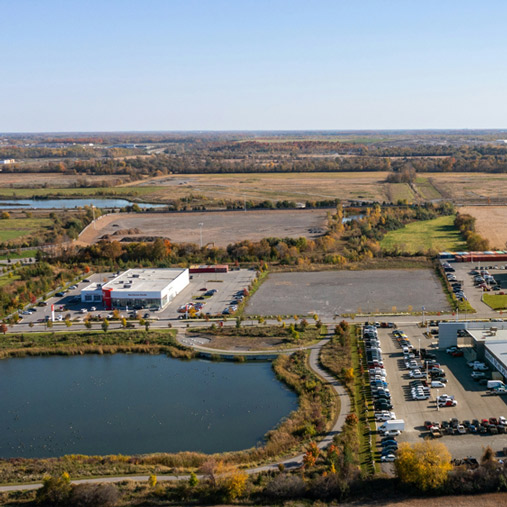What Investors Should Consider Before Purchasing Industrial Land
Industrial land in real estate refers to parcels of land that are specifically designated for industrial use, which encompasses a wide range of activities including manufacturing, warehousing, distribution, and logistics.
This type of land is typically zoned by local governments to facilitate these operations and is often located in areas that are strategically positioned near transportation hubs such as highways, railroads, and ports.
The characteristics of industrial land can vary significantly depending on its intended use, and it is essential for potential buyers to understand these nuances.

Characteristics of Industrial Land
Industrial land is often characterized by several key features that differentiate it from residential or commercial properties. Firstly, the size of industrial parcels tends to be larger, accommodating extensive facilities such as factories or warehouses.
Additionally, the infrastructure on or near the land is crucial; this includes access to utilities like water, electricity, and sewage systems, as well as transportation networks that facilitate the movement of goods. Moreover, industrial land may also be subject to specific environmental regulations and zoning laws that dictate what types of activities can be conducted on the property. For example, some areas may be designated for heavy manufacturing, while others may be limited to light industrial uses or warehousing.
Understanding these zoning classifications is vital for any prospective buyer.
Factors to Consider Before Purchasing Industrial Land
Before making a decision to purchase industrial land, there are several critical factors that potential buyers should thoroughly evaluate:
- Zoning Regulations
Zoning laws determine how the land can be used and what types of businesses can operate there. Buyers should check with local zoning authorities to ensure that the intended use aligns with the existing zoning classification. If the land is not zoned for the desired industrial use, it may require a zoning change, which can be a lengthy and uncertain process.
- Location and Accessibility
The location of industrial land is paramount for operational efficiency. Proximity to major transportation routes, including highways, railroads, and airports, can significantly impact logistics and shipping costs. Additionally, being close to suppliers and customers can enhance business operations. Buyers should assess the accessibility of the site for large trucks and delivery vehicles.
- Environmental Considerations
Industrial activities can have environmental impacts, and buyers must be aware of any potential environmental regulations that may apply to the land. Conducting an environmental assessment can help identify any contamination issues or other environmental concerns that may need to be addressed before development can commence.
- Utility Availability
Access to essential utilities such as water, electricity, and gas is critical for industrial operations. Buyers should verify that these services are readily available at the site and assess whether the existing infrastructure can support their intended use.
- Market Trends
Understanding the local real estate market and economic trends is essential for making an informed investment. Buyers should conduct thorough market research to evaluate demand for industrial space in the area, as well as potential future developments that could affect property values.
- Costs and Financing
Purchasing industrial land involves various costs beyond the purchase price, including property taxes, insurance, and potential development costs. Buyers should also explore financing options, as industrial properties can sometimes require significant investment for construction and development.
- Future Growth Potential
Investors should consider the long-term growth potential of the industrial land. Analyzing regional growth patterns, infrastructure developments, and economic forecasts can provide insights into the future value of the property and its suitability for investment. In conclusion, industrial land in real estate plays a crucial role in supporting various industrial activities and economic growth.
Before purchasing such land, it is essential for buyers to conduct thorough due diligence, considering factors such as zoning regulations, location, environmental issues, utility access, market trends, and associated costs.
By carefully evaluating these elements, buyers can make informed decisions that align with their business objectives and investment strategies.
Copyright © PropertiesPensacola.com | All Rights Reserved.